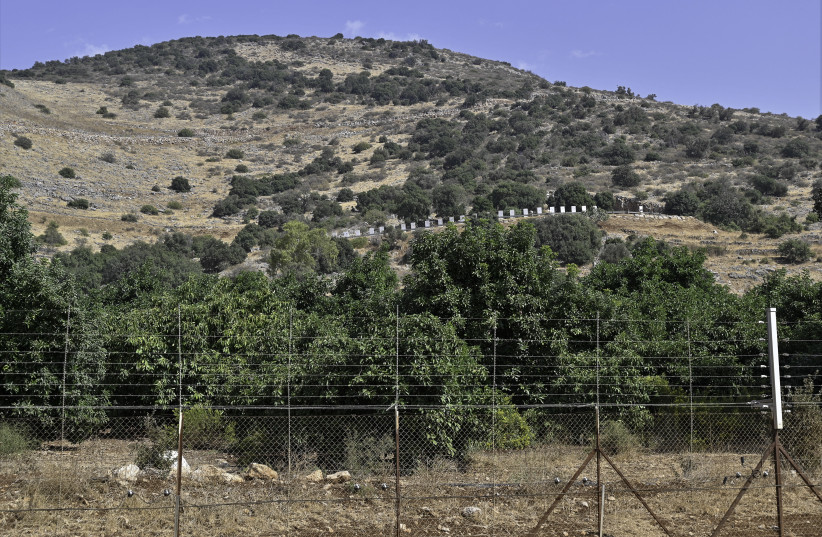The infiltration attempt by two migrant workers who crossed the border from south Lebanon into Israel may have been the first of the new year, but it was just another incident in a long line of worrisome events along the porous border.
The border area with Lebanon has been flagged by the IDF as vulnerable to enemy infiltrations and has seen dozens of drug and weapon smuggling operations as well as several infiltrations by migrant workers in the past year.
According to IDF data, the military thwarted nine attempts to infiltrate from Lebanon, two more from Syria and confiscated 120 kilos of drugs and 75 weapons over the past year.
But the real threat comes from Hezbollah’s elite Radwan unit. The Unit, honoring Hezbollah’s military commander Imad Mughniyeh, killed in Damascus in 2008 in an operation attributed to Israel and known as al Hajj Radwan, was established to carry out covert operations against it.
Radwan operatives are expected to be at the forefront of any Hezbollah attack against Israel, infiltrating Israeli communities along the border to kill as many civilians and troops as possible, accompanied by a massive barrage of rockets, mortars, anti-tank missiles, and more.

While operatives from the unit fought in Syria for several years, gaining extensive operational experience, most have returned to south Lebanon. Though Hezbollah has redeployed troops back to the border between Lebanon and Israel, the IDF does not believe that a preemptive strike against Radwan forces would be the right move at the moment.
Nevertheless, the military is aware that operatives belonging to the terror group have been paying close attention to all infiltration and drug smuggling attempts across the border. After every attempt, foiled or not, there is a lesson to be learned. The operatives can learn about troop deployment, the time it takes to respond to events, how the IDF responds, and much more.
Israel has been working to strengthen its northern border for several years, but due to financial constraints and political wrangling, has only completed 14 kms. of a concrete barrier along the Lebanese border. The remainder of the border with Lebanon is a fence that was originally built in the 1980s. While sections of it have been upgraded several times it is said to be in poor condition.
The fence provides the military with indications of tampering which allow troops to quickly get to the scene, but senior officers have admitted that it would not stop infiltrations by Radwan operatives.
Due to the threat of infiltrations by Hezbollah and the poor shape of the fence, the Israeli military is building a new smart fence along the border.
The upgraded fence will be tailor-made to fit the topography and threats emanating from Lebanon. The concrete, steel, and barbed wire fence will be six meters high stretching several kilometers with sensors, information collection centers, warning systems, and more. It is expected to be completed within two years.
In addition to infiltrations by Hezbollah’s Radwan fighters, the Shi’ite terror army is estimated to have some 130,000 rockets and mortars. Some 2,000 rockets can be expected to streak toward Israel each day from Lebanon should a war break out.
The Defense Ministry has also expanded its Northern Shield (Magen Hatzafon) program to fortify homes in 21 border communities, and likely to be evacuated should any war break out.
It’s like a game of cat and mouse along Israel’s northern border, and while senior military officers have said that they prefer to act as the cat, the mouse can at the end of the day, get away.
